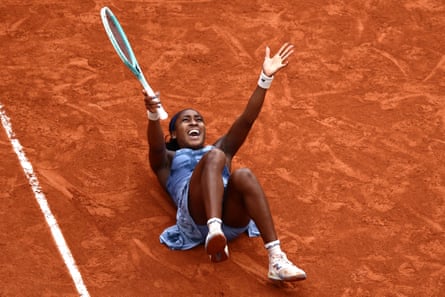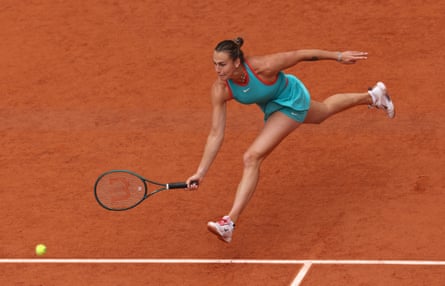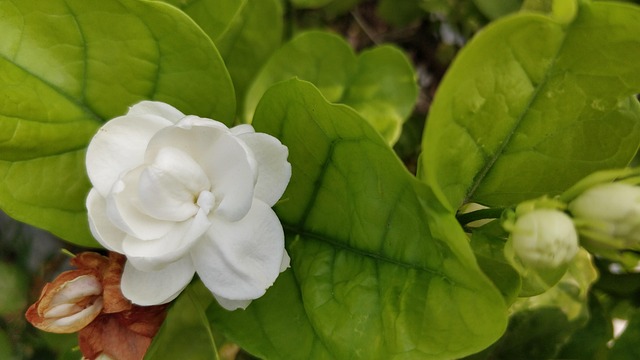In her half-decade competing at the highest level, Coco Gauff has built an impermeable reputation for her toughness in battle. No matter the significance of the occasion or the state of her strokes, she will fight with everything at her disposal and make life incredibly difficult for any opponent. More often than not, she will find a way through.
Across the net from the best player in the world in one of the most important occasions of her career, Gauff showed the full magnitude of her grit and durability to topple Aryna Sabalenka 6-7 (5), 6-2, 6-4 and win her first French Open title.
When Gauff first emerged on the tour as a precocious 15-year-old in 2019, many people had doubts about whether she would be able to live up to the hype and establish herself as a major champion. She has had well-documented struggles with her serve and forehand, and every step of her journey has been scrutinised. Regardless of the difficulties and setbacks, she just kept on working. At just 21 years old she is now a two-time grand slam champion.
Since losing her first final at Roland Garros in 2022 aged 18, Gauff has won her two subsequent grand slam finals and now holds a 10-3 record in finals overall. “I was going through a lot of things when I lost in this final three years ago,” said Gauff. “I’m just happy to be here, a lot of dark thoughts. Just the fact that I stayed to it just means a lot.”
This victory also underlines the importance of remaining patient. After a difficult start to the season, Gauff found her form on the red clay, reaching finals at the Madrid Open and Italian Open. Gauff lost to Sabalenka in two tough sets in Madrid before squandering a significant opportunity against Jasmine Paolini in Rome. In the biggest clay court tournament of all, she rose to the occasion. “I got the most important one, so I guess that’s all that matters,” she said.

While Sabalenka has previously used humour as a coping mechanism after difficult losses, jokingly lambasting her team, her anger was plain to see after yet another edgy performance in a grand slam final. It has taken an immense effort for the 27-year-old to transform her game and mentality, an improvement underlined by her semi-final win over the four-time champion Iga Swiatek. But here she was overcome by her emotions in the most difficult moments.
A tearful Sabalenka lambasted her performance and the conditions: “This loss hurts so much, especially after such a tough two weeks, I played great tennis. And in these terrible conditions, showed such terrible tennis in the final.”
This occasion marked the first French Open final between the top two female players since 2012. Sabalenka and Gauff have built an intense rivalry over the last five years, contesting numerous dramatic three-set matches, including an unforgettable tussle in New York, where Gauff defeated Sabalenka to win her first major title at the 2023 US Open.
Elsewhere, Alfie Hewett was beaten 6-4, 7-6 (8-6) by Japan’s Tokito Oda in the men’s wheelchair final. Hewett teams up with Gordon Reid later in the men’s wheelchair doubles final, against Oda and France’s Stephane Houdet.
“,”credit”:””}”>
Quick Guide
Klugman’s bid for junior glory falls short
Show
Hannah Klugman’s bid to become Britain’s first French Open juniors champion in 49 years ended in a straight-sets defeat to Austrian Lilli Tagger in the final. The 16-year-old was beaten 6-2, 6-0 by the17-year-old Tagger in front of a packed Court Simonne-Mathieu. Klugman, ranked 13th in the world junior rankings, was hoping to emulate Michelle Tyler, the last British player to win the girls’ title in 1976.
Elsewhere, Alfie Hewett was beaten 6-4, 7-6 (8-6) by Japan’s Tokito Oda in the men’s wheelchair final. Hewett teams up with Gordon Reid later in the men’s wheelchair doubles final, against Oda and France’s Stephane Houdet.
Despite windy conditions from the opening point, Sabalenka struck the ball beautifully early on as she established a 4-1 lead. But then she fell apart. She struggled badly with the wind, losing control of her emotions and a rapidly rising unforced error count. With Sabalenka’s groundstrokes in disarray, a tenacious Gauff chased down every ball and gave nothing away. Down 3-5 in the tiebreak, Sabalenka regained composure and reeled off four consecutive points to take the set.
after newsletter promotion
At that point the most likely outcome was that Sabalenka would relax and play freely until the end. Instead, the emotional energy she used up seemed to leave its mark. While the Belarusian started the second set completely flat and increasingly frustrated by the gusty conditions, Gauff rose to the occasion.

In stark contrast to Sabalenka, Gauff remained positive, cheering on her successful points while betraying minimal emotion when she faltered. She focused intently on chasing down every ball, extending every point and looking for opportunities to impose herself. She refused to lose her cool when the wind kicked up on key points.
Gauff pushed Sabalenka back with her backhand and smothered her opponent’s second serve in the second and third sets. Her forehand, once a weakness, held up brilliantly, its heavy topspin kicking up out of Sabalenka’s strike zone. She found searing first serves when she needed them. In the most difficult moments, including a breathless final game that veered from match point to break point and back again, Gauff’s mental fortitude guided her through as she closed out the best win of her career.



